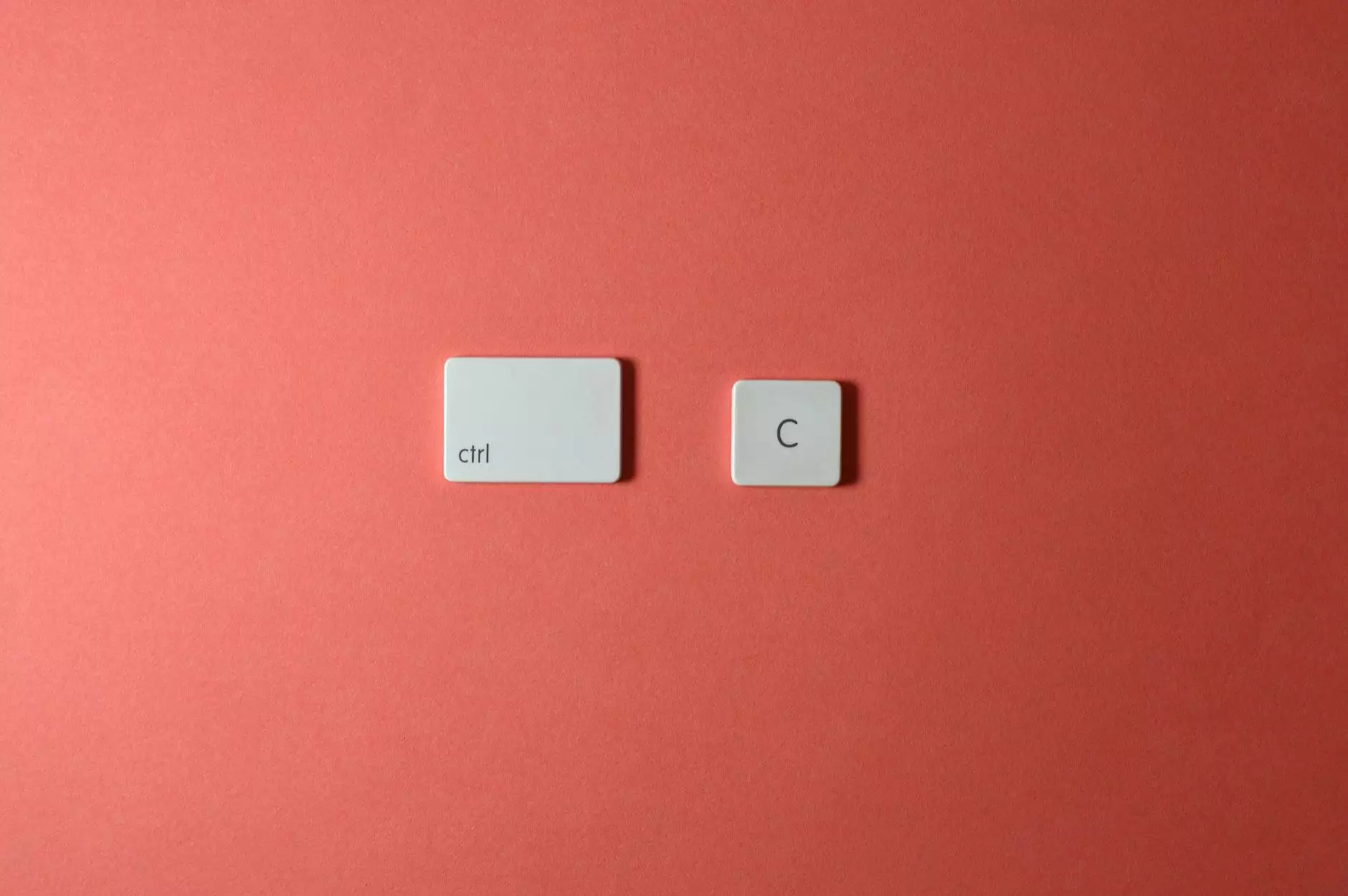Understanding Plastic Moulding for Electrical Applications

Plastic moulding for electrical applications is a crucial process in the manufacturing and assembly of high-quality electrical components. This article will explore the intricacies of plastic moulding, its advantages, and why Deep Mould stands out as a leader in providing exceptional services to metal fabricators in the industry.
What is Plastic Moulding?
Plastic moulding is a manufacturing process that involves shaping plastic materials into desired forms using molds. This technique is widely used in various industries, especially in electrical applications, where precision and durability are paramount. The process allows for the creation of intricate designs and shapes, making it ideal for components such as casings, connectors, and insulators in electrical devices.
Different Types of Plastic Moulding Processes
There are several types of plastic moulding processes, each with its unique attributes and applications:
- Injection Moulding: This is the most common type of plastic moulding, where melted plastic is injected into a mold. It is perfect for producing large quantities of identical parts with high precision.
- Blow Moulding: Used primarily for creating hollow plastic parts like bottles and containers, blow moulding involves inflating a hot plastic tube until it expands to fill a mold.
- Compression Moulding: This process involves placing a pre-heated plastic material into an open mold, which is then closed and pressure is applied to shape the material. It is ideal for larger, more complex parts.
- Thermoforming: In thermoforming, a plastic sheet is heated until it becomes pliable, then formed over a mold and cooled. This method is frequently used for creating packaging and trays.
The Importance of Plastic Moulding in Electrical Applications
Plastic moulding plays a vital role in the electrical industry. The use of plastics allows for lightweight, durable, and cost-effective components that meet the stringent standards required for electrical applications. Here are some reasons why plastic moulding is essential:
1. Safety and Insulation
One of the primary reasons for using plastic moulding in electrical applications is the safety it provides. Plastics are excellent insulators, which help prevent electrical short circuits and ensure user safety. Components like switches, connectors, and casing for electrical devices are often made of high-quality plastic to maximize insulation and safety.
2. Design Flexibility
Plastic moulding allows for complex designs that can accommodate various functionalities. This flexibility means manufacturers can create intricate shapes and features that may not be possible with traditional metal fabrication methods.
3. Cost-Effectiveness
Producing electrical components through plastic moulding is often more cost-effective than using metals. The lower material costs, combined with reduced labour and machining expenses, make plastic moulding an attractive option for manufacturers looking to minimize production costs.
4. Weight Reduction
In the electrical industry, minimizing weight without sacrificing performance is crucial. Plastic moulding allows manufacturers to produce lightweight components that help reduce the overall weight of electrical devices, improving their portability and ease of use.
Challenges in Plastic Moulding for Electrical Applications
While plastic moulding offers numerous advantages, it also comes with certain challenges:
- Temperature Resistance: Some plastics may not withstand extreme temperatures, which is a critical factor in electrical applications that generate heat.
- Durability: Over time, plastics can degrade or become brittle, particularly when exposed to UV light or harsh chemicals, which may affect the longevity of electrical components.
- Recyclability: Although many plastics can be recycled, the process of recycling plastic electrical components can be complicated, posing environmental concerns.
Choosing the Right Materials for Plastic Moulding
When it comes to plastic moulding for electrical applications, selecting the right materials is essential. The choice of plastic can significantly impact the performance, durability, and safety of the final product. Here are some commonly used plastics in electrical applications:
- Polycarbonate (PC): Known for its high impact resistance and transparency, polycarbonate is often employed in electrical housings and covers.
- Polypropylene (PP): This material is lightweight, resistant to chemical corrosion, and has excellent electrical insulation properties, making it suitable for a variety of electrical components.
- ABS Plastic: Acrylonitrile Butadiene Styrene (ABS) is popular for its toughness and impact resistance and is used in various applications, including electrical enclosures.
- Nylon: Nylon is known for its durability and resistance to wear, making it a preferred choice for components that require strength and flexibility.
The Plastic Moulding Process: Step-by-Step Guide
The plastic moulding process involves several key steps that ensure precision and quality in the final product:
1. Design and Prototyping
The first step involves creating a design and prototype of the desired product. Modern CAD (Computer-Aided Design) software is commonly used to simulate and visualize the component.
2. Mold Creation
After finalizing the design, a mold is created, typically using metal materials like steel or aluminum due to their precision and durability. The mold must be designed to accommodate the specific plastic being used and the component's intricacies.
3. Material Preparation
The chosen plastic material is prepared. This may involve drying the resin to remove moisture and preparing it for the injection or shaping process.
4. Moulding Process
Depending on the chosen method (injection, blow, compression, or thermoforming), the prepared plastic is shaped into the final product. For example, in injection moulding, the plastic is heated until molten and injected into the prepared mold.
5. Cooling and Ejection
Once the plastic has been injected and shaped, it is cooled to solidify. The mold is then opened and the finished product ejected. Quality checks are conducted at this stage to ensure the product meets specifications.
6. Finishing Touches
After ejection, products may undergo secondary operations such as trimming, painting, or assembly, depending on the requirements.
Why Choose Deep Mould for Plastic Moulding?
At Deep Mould, we pride ourselves on providing the highest quality plastic moulding services tailored to meet the specific needs of our clients in the electrical sector. Here’s why we stand out:
1. Expertise and Experience
Our team consists of highly skilled professionals with extensive industry knowledge. We understand the specific challenges faced in plastic moulding for electrical components and are prepared to address them effectively.
2. State-of-the-art Technology
We utilize the latest technology and equipment to ensure precision and efficiency in every project. Our advanced moulding techniques allow us to produce high-quality components that consistently meet industry standards.
3. Custom Solutions
We offer tailored solutions to meet our clients’ unique requirements, whether they need intricate designs or high-volume production. Our ability to adapt our services to meet specific needs makes us an invaluable partner in your production processes.
4. Commitment to Quality
Your satisfaction is our top priority. We adhere to strict quality control processes, ensuring that every product meets the highest standards before it reaches your hands.
Conclusion
In conclusion, plastic moulding for electrical applications is an essential process that significantly contributes to the production of quality electrical components. At Deep Mould, we are dedicated to providing exceptional plastic moulding services that meet the needs of our clients in the electrical industry. Whether you are a small manufacturer or a large-scale producer, our expertise, state-of-the-art technology, and commitment to quality make us the ideal partner for all your plastic moulding needs. Experience the difference with Deep Mould today!



